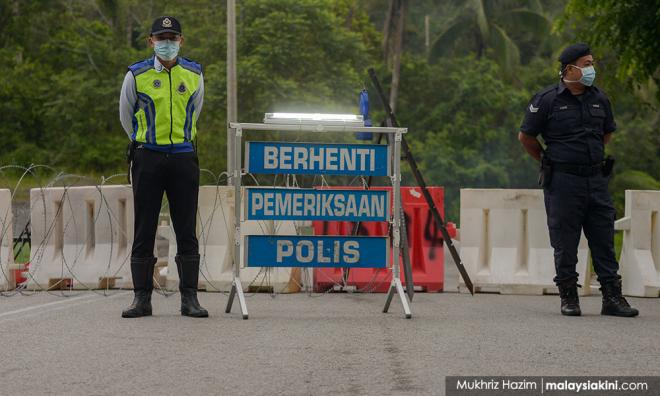
As we enter into the fourth week of the coming into force of the Prevention and Control of Infectious Diseases (Measures within the Infected Local Areas) Regulations 2020 (also known as the movement control order or MCO), we continue to see violations of the MCO despite the warnings and public service announcements circulating the country.
G25 Malaysia would like to applaud the law enforcement officers for their efforts in keeping these violators in check and taking action against those who flout the MCO.
However, a case-by-case risk assessment needs to be done by law enforcers when receiving a complaint or when coming across violators. The enforcement of the MCO must be made in line with its ultimate goal of reducing the spread of the virus without unnecessarily burdening the people or police.
The MCO is not meant to be a punitive measure so each case must be handled with some compassion and sensitivity. Exceptions need to be made from the beginning so that those with valid reasons are not stopped or charged, thus saving valuable resources and time for both the public and the police.
For example, the elderly should be able to go out in pairs when buying groceries as some may need assistance, whether to drive or carry the groceries. The poor or those who have lost their jobs need to be given alternatives or exceptions when finding food or working for money so long as they do not put others at risk.
A measure of compassion is needed in implementing the MCO while at the same time keeping everyone safe.
Whilst we commend the good work of enforcement officers in enforcing the MCO, which at times can be a trying task, in view of the fact that the current generation of Malaysians is not used to such a drastic (but necessary) law as the MCO, nevertheless, we, respectfully, would like to remind the enforcement officers not to be overzealous but to respect Article 5 of the Federal Constitution (no person shall be deprived of his life or liberty save in accordance with the law) and the rule of law in the enforcement of the MCO.
We say this because we observe that in a number of cases, the enforcement officers have been arresting the violators of the MCO and placing them under custody as if the offence is an arrestable offence. Under the Criminal Procedure Code (the CPC) a violation of the MCO is a "non-seizable offence", meaning that it is not an arrestable offence.
Thus, the enforcement officer cannot arrest the alleged violator on the spot. Under the CPC, a violation of the MCO is only a summons case offence, meaning that the legal proceeding against the alleged violator can only be by way of a summons.
The enforcement officer concerned must apply to a magistrate that a summons is issued to the alleged violater. We are, of course, aware of the power of an enforcement officer to arrest a person on the spot under section 186 of the Penal Code for the offence of obstructing the enforcement officer in the discharge of his function.
However, with regard to the MCO, we note that in the vast majority of cases it was a mere case of an alleged violation of the MCO per se, and not a case of obstructing the enforcement officer in enforcing the MCO.
Hence it was not lawful for the enforcement officer to have exercised the power of arrest against the alleged violator. - Mkini



No comments:
Post a Comment
Note: Only a member of this blog may post a comment.